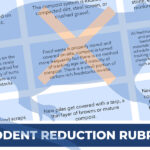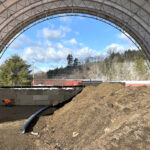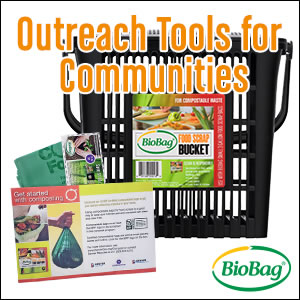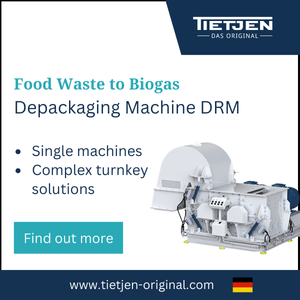Top: Photo by Carson Meyer Photography
Teton County Integrated Solid Waste and Recycling (ISWR) in Jackson, Wyoming had a grand opening of its Food Waste Composting Facility in January 2021, followed by accepting the first loads of food waste on February 1. This service is open to residents and businesses able to self-haul food waste to the Food Waste Composting Facility located on the same property as the Trash Transfer Station. The county’s program is accepting food waste only; no paper products, compostable or biodegradable plates, cups, or serviceware are accepted at this time. Additionally, shellfish is not allowed. To facilitate commercial source separation of food waste, the county created a toolkit for businesses that outlines key elements of a successful program, and provides printable signage.

Residents and commercial businesses can self-haul food waste to the Teton County Transfer Station, which began accepting the source separated material for composting in February. Photo courtesy of Teton County ISWR.
Prior to starting its own program, Teton County participated in food waste collection and composting as part of the Zero Landfill Initiative in National Parks, a 3-year pilot project (2017-2019). The county and Subaru of America were sponsors of the initiative. The Grand Teton Lodge Company and Signal Mountain Lodge in Grand Teton National Park were part of the pilot and successfully diverted 247 tons of food waste from the landfill over the 2017, 2018 and 2019 summer seasons. A 2019 BioCycle article, “Closed Loop Composting System In Wyoming,” profiled pilot participants, including Signal Mountain Lodge and the composting facility, WyoFarm Composting. Lessons learned from the Zero Landfill Initiative have been incorporated into the county’s new food waste composting program.
Food waste may be brought to the Transfer Station facility by residents and businesses between 9:00 AM-2:00 PM, Monday to Friday. The tip fee is $65/ton or approximately $.03/lb. A $10 minimum applies to food waste as well as trash and yard trimmings, explains the county. Inspection of food waste by the compost yard attendant is required at the time of delivery. Food waste may be brought unbagged (in 5-gallon or larger containers), or bagged, and must be free of non-food waste. Bagged material has to be tipped from the bags at the facility by the customer. “Any non-food waste found will be returned or the load may be rejected,” notes the county.













